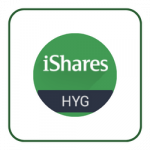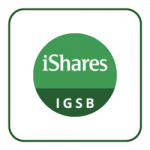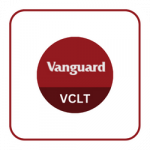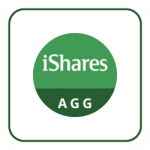This content represents the writer’s opinions and research and is not intended to be taken as financial advice. The information presented is general in nature and may not meet the specific needs of any individual or entity. It is not intended to be relied upon as a professional or financial decision-making tool.
The iShares iBoxx Investment Grade Corporate Bond ETF (LQD) is an exchange-traded fund exclusively holding bonds and tracking the investment results of an index composed of U.S. dollar-denominated investment grade corporate bonds. This is an investment instrument quite like the comparable mutual funds, which represents a broadly diversified, however notable cheaper cost alternative. The benchmark index, which this ETF aims to track is Markit iBoxx USD Liquid Investment Grade Index. LQD is a liquid fixed-income asset class, allowing investors to trade shares similar to normal stock. Like many other bond ETFs, it is essentially a pool of bonds issued by various companies, offering a more diversified investment opportunity. Apart from its better expense ratio, i.e. lower fund management costs, LQD can also be considered as a more attractive option from the liquidity perspective.
Table of Contents
Characteristics, Performance Analysis and Expectations
Characteristics
Instead of searching for solid fixed-income investment opportunities among various bond issues of blue chips and other leading U.S. corporations, purchasing the shares of LQD or other similarly structured ETFs provide the investors with exposure to pre-defined bond portfolios.
Meanwhile, the portfolio risk is substantially reduced through a much better degree of diversification, while the management, as well as transaction costs of such a single trade, is way lower if compared to multiple purchases of various bonds to construct a comparable portfolio.
Launched in July 2002 and managed by BlackRock, LQD offers a quality portfolio, with below current holdings:
- Nearly 89% of its assets are in BBB or higher-ranked debt instruments.
- Or 52% in A or higher rankings.
Currently, the volume of the net assets of LQD amount to around USD 40.6 billion, which includes all of its bond holdings, cash, and other financial instruments. This makes it one of the largest bond ETFs globally.
At the same time, LQD offers an annual dividend yield of 3.14% as of January 2023, paid monthly. Thus, it is an attractive investment option to be considered by investors looking for index-linked bond portfolios offering solid and frequent dividend payouts.
Generally, the bond or equity ETFs are traded like usual company stocks, based on their price per share which is called net asset value or NAV in the case of ETFs. It is calculated by reducing the ETF’s total liabilities from its total assets, which will result in the total net assets (TNA) of the fund. Then the TNA is divided by the number of shares outstanding to get the actual daily NAV at the opening or closing of the market.
At the moment, iShares iBoxx Investment Grade Corporate Bond ETF’s key numbers are listed below:
- TNA amounts to USD 40.55 billion
- It is distributed through its 2,500+ corporate bond holdings
- The number of outstanding shares is 366.6 million pieces.
- LQD’s closing share price was USD 110.62 per unit at the end of the last trading day
- Its effective duration is 8.6 years as per current calculations.
- The fund’s expense ratio is just 0.14%, so the payable annual cost is calculated based on this ratio and the volume of the LQD shares a given investor owns.
This fee is in the average range compared to most of the bond ETFs and it is charged by BlackRock as the manager of this ETF for covering the related operating expenses.
Performance Analysis
The ETF started the year 2023 quite well with a +4.09% year-to-date (YTD) increase. Indeed, it’s driven by the overall market rebound following the previous year-end drop and is based on some positive expectations of a slow-down in the inflation rate. Provided that the key benchmark indexes have been moving in the same direction within a range of 1.8-3.2%, LQD’s better-than-average performance looks promising.
It’s important to emphasize that LQD (along with other bond ETFs) is not targeting capital appreciation or share price increase by its nature, because it is a fixed-income debt vehicle, holding bonds issued by various private entities.
Instead, the fund is offering good diversification, as well as stable and attractive dividend yields over a long-term horizon, paid out with monthly frequency. The dividend payments are made out of LQD’s cash-inflows, primarily consisting of coupon and other payments by bond issuers – highly capitalized and well-established corporations with proven business models and stable growth outlooks.
If we try to compare the 20+ year performance of the iShares iBoxx Investment Grade Corporate Bond ETF since inception with the broader market, i.e. its key indexes for the same period, then we will notice that except for the period of the global financial crisis 2007-2009 and the unprecedented turbulences of the last year, LQD was subject to lower levels of its share price volatility.
This can be comforting for many investors to see, especially for the ones looking for diversification of their equity-denominated portfolios combined with the possibility of securing a nice dividend yield for their investment.
Expectations
Based on LQD’s historical performance and its above-mentioned main characteristics, in our view, its forecast for the current financial year is that it will continue staying less volatile, compared to the rest of the broader market.
Currently, the markets are over-sensitive to the news on inflation and related state bank policy decisions primarily concerning interest rate changes. However, such decisions have a more limited impact on LQD and other bond ETFs, compared to their much stronger influence on equity markets.
Additionally, we believe that the inflation will, unfortunately, stay with us longer, nevertheless, it will expectedly slow down already by mid-2023, which would certainly be perceived as positive news to finally bring some stability to the markets.
If you decide to invest in LQD, you should first check whether your country is on BlackRock’s eligibility list. This can be easily done by visiting their website, and clicking on the iShares section: you will see the geographical regions directly below, clicking on which (Europe or Americas, for instance) will open the full list of countries where iShare titles can be traded. In case you find your country on that list, then the next step would be to open a direct brokerage account with BlackRock. This will enable you to start investing in their whole product range, including the purchase of iShares iBoxx Investment Grade Corporate Bond ETF, once you would opt to do so.
However, if your country won’t appear on the above-mentioned list of acceptable jurisdictions, then there are two options: if you already have a brokerage account with one of the common online platforms like eToro, Interactive Brokers, Trading 212, or any other, then you should try searching for the ticker symbol of this ETF, by simply typing LQD in the search window. Alternatively, the last option to try would be approaching your old-good bank and asking them if LQD is an eligible product to be traded with their assistance.
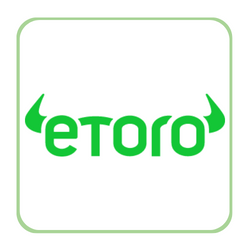
If you’re considering investing in iShares iBoxx Investment Grade Corporate Bond ETF (LQD), eToro is an excellent choice. eToro boasts a solid reputation and offers a wide range of options for both beginner and professional traders. In this mini guide, we’ll walk you through the process of opening an account on eToro and investing in LQD.
Step 1: Open your Personal Account
To begin, you’ll need to create an account on eToro. Visit eToro’s homepage and click the “Join Now” or “Sign Up” button to start the registration process. You’ll be prompted to enter your personal information, including your full name, email address, and phone number. After completing this step, you’ll receive a confirmation email to verify your account.
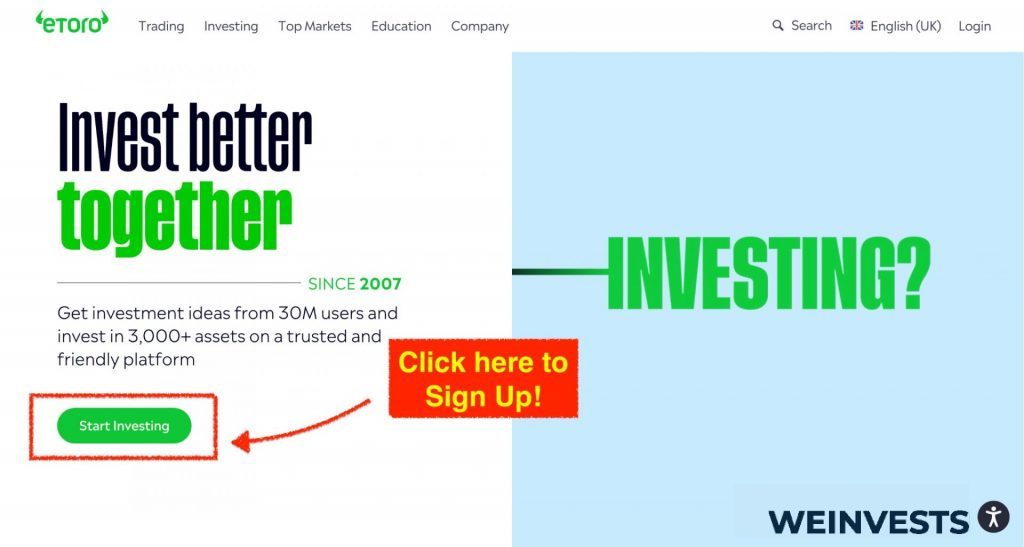
Step 2: Upload ID
Next, you’ll need to provide proof of identity to eToro. This can be done by uploading a clear and legible copy of your government-issued ID or passport. Make sure your document is valid and includes your full name, date of birth, and a photograph. Uploading your ID is a crucial step to ensure compliance with regulatory requirements and protect your account from fraud.
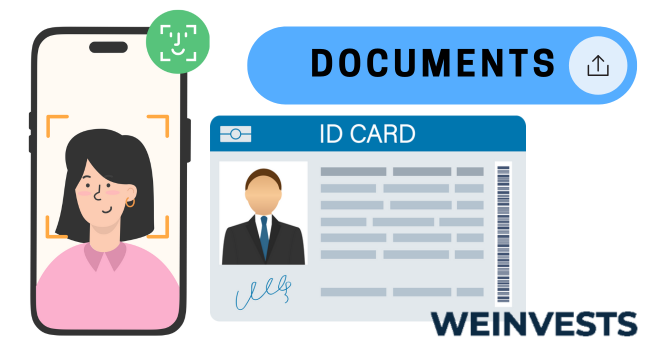
Step 3: Make a Deposit
To start investing, you’ll need to fund your eToro account. Log in to your account and click the “Deposit Funds” button. You can choose from a variety of deposit methods, including credit/debit cards, PayPal, and wire transfers. Make sure to review eToro’s minimum deposit requirements, which may vary depending on your location and chosen deposit method.
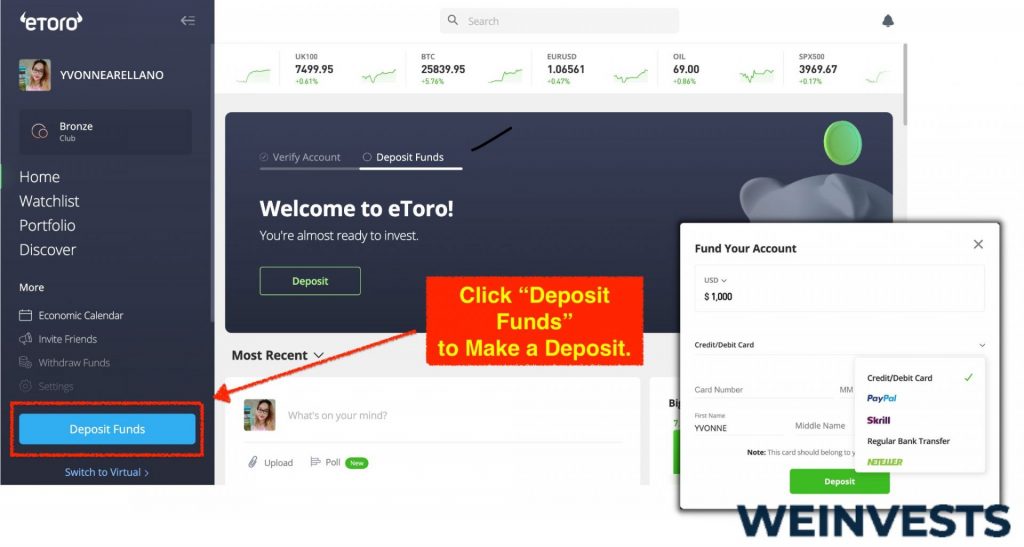
Step 4: Search for LQD
Once your account is funded, you’re ready to search for LQD. Navigate to the eToro platform’s main search bar and type in “iShares iBoxx Investment Grade Corporate Bond ETF” or “LQD.” The platform will display relevant results, allowing you to select the appropriate ETF.
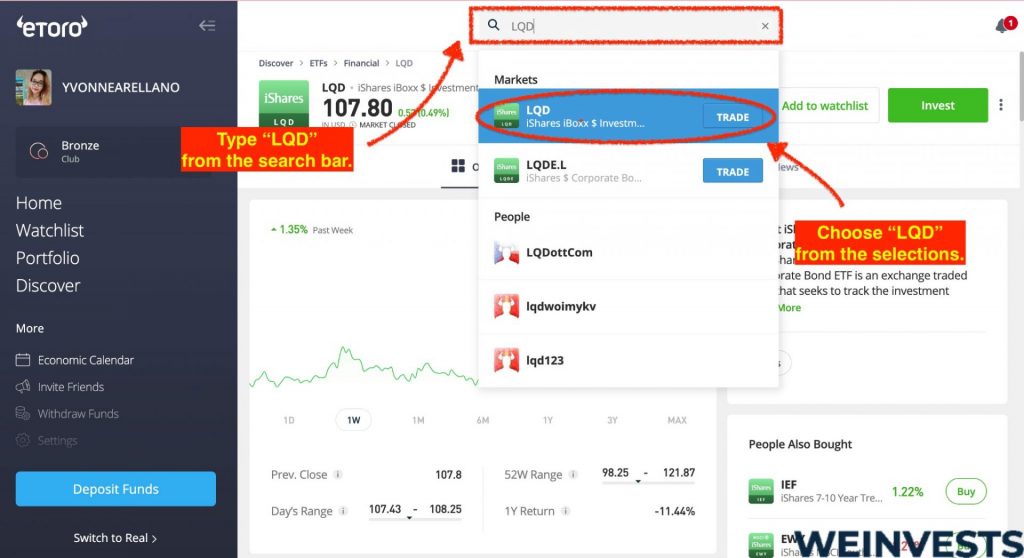
Step 5: Trade LQD
Finally, you can purchase LQD. Click on the LQD ETF in the search results to access its dedicated page. Review the ETF’s performance, fees, and other relevant information before investing. When you’re ready to trade, click the “Trade” button and enter the amount you’d like to invest. Confirm your order, and eToro will execute the transaction for you.
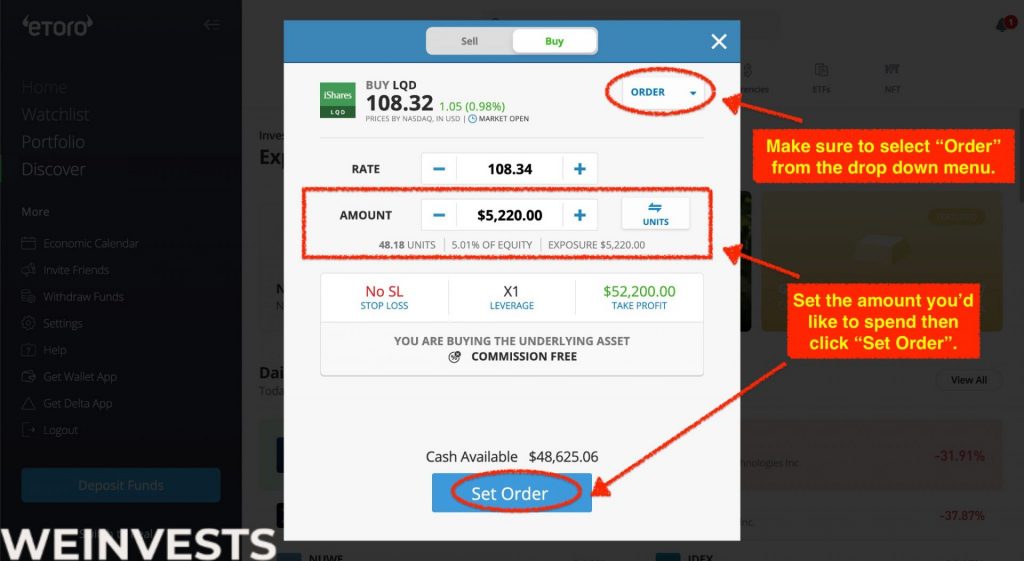
Risks associated with LQD
Market Risk
Under market risk, we understand the overall risk driven by many important factors behind the financial markets. If triggered, they may affect your investment portfolio in both directions – positive and also negative. Among such we can classify factors like the interest rate changes, significant drops in the share price of LQD or any other ETF (caused by an excess supply or strong drop of demand for the fund’s shares or its main holdings), inflationary pressures, strong fluctuations in exchange rates, as well as economic or political events influencing the broader markets.
Since the iShares iBoxx Investment Grade Corporate Bond ETF is mainly holding bonds issued by large corporations, it is naturally affected by their overall financial results, adverse changes in debt-servicing capacity, level of financial credibility, etc. Negative headlines about the issuers of bonds held by LQD, such as deterioration in their cash flow, missed targets of quarterly earnings, revision of financial estimates announced earlier or lawsuits will impact the ETF’s share price negatively.
Therefore, before undertaking any investment in LQD or any other title, it is highly recommended to conduct your own research for understanding the market-related and other risks elaborated below, as these may potentially have a downside impact on your investments.
Credit Risk
When addressing credit risk, we understand the risks associated with probable failures in payment of outstanding obligations by the involved parties, which trading the case of bond ETFs like LQD, would be the issuing companies. As a fixed-income vehicle holding bonds only, LQD is exposed to thousands of counterparties, which may potentially default on the fulfillment of their financial liabilities completely or partially.
However, as we are talking about investment-grade bonds here, the probability of default of issuing corporations is very low. Nevertheless, it is important to look closer into the ETF’s holdings to understand how high the credit risk could be in LQD’s case, before taking an investment move.
Liquidity Risk
Compared to other risk types, the liquidity risk is quite straightforward – it is essentially an event or situation, which is limiting the fast and complete cash-out of your investment, in case you would decide to do so. Liquidity risk related to large ETFs like iShares iBoxx Investment Grade Corporate Bond ETF, provided its overall good credibility, degree of high diversification, multimillion share trades per day, and many other factors are considered to be low.
Valuation Risk
Undervaluation risk we classify those types of risks which may potentially cause possible inaccuracies in the pricing of a given financial instrument. When considering ETFs like LQD, this kind of risk is relatively low, given that bonds, as well as equity ETFs, are primarily traded through stock exchanges, where the share prices are determined by the balance of supply and demand forces at a given time.
Nevertheless, there are still some external and internal market-related events, which may have an impact on the given ETF’s share price, depending on its underlying holdings. Still, particularly in the case of LQD and its good-quality holdings, the valuation risk is relatively low.
Risk Summary
| Risk | Relatively Low | Average | Relatively High |
| Market Risk | – | – | X |
| Credit Risk | – | – | X |
| Liquidity Risk | X | – | – |
| Valuation Risk | – | X | – |
Conclusion
iShares iBoxx Investment Grade Corporate Bond ETF is an exchange-traded fund that tracks Markit iBoxx USD Liquid Investment Grade Index as a benchmark. This ETF is established and passively managed by BlackRock, therefore offering a low expense ratio of just 0.14%.
Although, like with any other investment various risks are involved, however as LQD consists of only investment-grade U.S. corporate bonds. It could be an appropriate choice for investors targeting medium to long-term income and diversification of their equity-dominated portfolios.
Nevertheless, given the probability of different events which may negatively impact the financial markets, causing a partial or complete loss of the capital you may intend to invest in this or any other ETF, your investment decisions must be balanced and thought through.
Frequently Asked Questions
There are different kinds of risks involved in any investment transaction, particularly also in bond ETF acquisitions. The major types of risk affecting the latter funds are market, credit liquidity, and valuation risks. Any investor interested in purchasing shares of bond ETFs should pay close attention to analyzing the above-mentioned risk, which may have a potentially negative impact on the capital to be invested.
Is LQD a good investment option and if so, for which investors?
As far as LQD’s holdings consist of investment-grade U.S. corporate bonds (currently totaling to over 2500 titles), it is broadly diversified and less costly as an investment option. Among many available bond ETFs to choose from, LQD may be one of the interesting instruments to be picked by investors targeting stable long-term income and good diversification of their portfolios.
WeInvests is a financial portal-based research agency. We do our utmost best to offer reliable and unbiased information about crypto, finance, trading and stocks. However, we do not offer financial advice and users should always carry out their own research.
Read More




